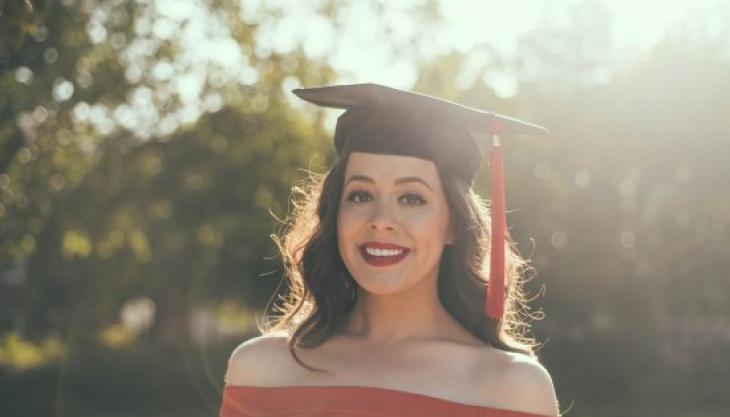Which Student Loans Are Easiest to Discharge in Bankruptcy?
Submitted by Rachel R on Mon, 11/06/2017 - 9:31am

Student loan discharge
Image via Jonathan Daniels on Unsplash
Don’t buy the hype that you can’t discharge student loans in bankruptcy. Depending on the type of loans, the circumstances, and other factors, you might be able to get partial or total relief on your school debt as part of your North Carolina bankruptcy. The greatest challenge to obtaining student loan relief in bankruptcy is proving “undue hardship.” This is the standard in bankruptcy law that requires you to show that if you have to pay your student loans, you will be unfairly disadvantaged. But if you meet certain requirements, undue hardship need not be an obstacle.
When Does Undue Hardship Not Apply?
For the undue hardship tenet to apply, the debt must be a “qualified educational loan.” Three factors to consider are for what the proceeds of the loan were used, when the loan was made, and the educational institution you attended. The purpose of the loan is the first thing to consider. If you took out a private student loan but the money wasn’t all used to pay qualified expenses for school, it may be considered a mixed-use loan and that allows the bankruptcy court greater latitude.
If some of the loan was used to pay for school and some for other expenses, such as clothing, car repairs, etc., the portion not used for educational expenses might be dischargeable in North Carolina bankruptcy without having to prove undue hardship. This can help hack away at burdensome educational debt. Timing also matters. If you were granted a loan during a period when you were not an “eligible student,” it should be dischargeable without proving undue hardship.
Some schools require you to meet specific pre-requisites for enrolling. If you didn’t meet these requirements or were later deemed ineligible, money borrowed to cover these courses may be more easily dischargeable in bankruptcy. If you were enrolled less than part-time or were not in a degree or certification-seeking program, you might also be able to seek discharged because you were technically ineligible to borrow for schooling.
The School or Program You Attended Is Important
Student loans must be made for courses taken at an “eligible educational institution,” and if your school doesn’t meet the standard, you might be able to discharge loans without proving undue hardship. In some cases, both federal and private student loans may be eligible for discharge. If the school you’re attending closes, and you can’t complete your degree or certification program before closure, you might be able to discharge the associated debt.
If you withdraw from the school and it closes within 120 days, you might be able to discharge the debt. For those that can get a closed school discharge, the benefits are impressive. First, you don’t have to file bankruptcy to get this discharge. You may be able to get the relief by going directly to your loan servicer with the claim against the closed school. You may be able to get payments already made returned to you, and if you’ve fallen behind, any adverse info on your credit report can be removed.
Borrower Defense Is Another Route to Discharge
Another way to get rid of student loans, for certain students, without proving undue hardship is to apply for borrower defense. This program allows forgiveness of federal student loans if the school misled students or violated laws. If your school made guarantees they can’t keep, such as promises of specific salary expectations that never materialized, overstated job prospects, or offered to train you in a program they knew you could never work in, you may see your debts forgiven.
With bankruptcy, to ask for student loan forgiveness, your lawyer must file an extra step called an adversary proceeding. This is an action that sues the lender for debt relief. It costs a little extra but is necessary for discharge in North Carolina bankruptcy. It’s also important to note the difference in tax effects of student loan discharge. If you discharge the debt in bankruptcy, you won’t owe income tax on the discharge amount. However, most other discharge mechanisms result in tax owed on the debt.
To find out more about student loan relief in bankruptcy, contact the Law Offices of John T. Orcutt. Call +1-833-627-0115 for a free North Carolina bankruptcy consultation at one of our convenient locations in Raleigh, Durham, Fayetteville, Wilson, Greensboro or Wilmington. Read reviews from our satisfied clients then see us to get moving on your fresh financial start.
Debts Hurt! Got debt? Need help? Get started below!
Serving All of North Carolina
- Bankruptcy Attorneys Raleigh NC (North)
- Bankruptcy Attorney Fayetteville NC
- Bankruptcy Attorney Durham NC
- Bankruptcy Attorneys Wilson NC
- Bankruptcy Attorneys Greensboro NC
- Bankruptcy Attorneys Southport NC
- Bankruptcy Attorneys Wilmington NC
Bankruptcy Attorneys Raleigh NC (North)
6616 Six Forks Rd #203 Raleigh, NC 27615 North Carolina
Tel: (919) 847-9750

Bankruptcy Attorney Fayetteville NC
2711 Breezewood Ave Fayetteville, NC 28303 North Carolina
Tel: (910) 323-2972

Bankruptcy Attorney Durham NC
1738 Hillandale Rd Suite D Durham, NC 27705 North Carolina
Tel: (919) 286-1695


Bankruptcy Attorneys Greensboro NC
2100 W Cornwallis Dr. STE O Greensboro, NC 27408 North Carolina
Tel: (336) 542-5993

Bankruptcy Attorneys Southport NC
116 N Howe St. Suite A Southport, NC 28461 North Carolina
Tel: (910) 218-8682

Bankruptcy Attorneys Wilmington NC
116 N. Howe Street, Suite A Southport, NC 28461 North Carolina
Tel: (910) 447-2987
